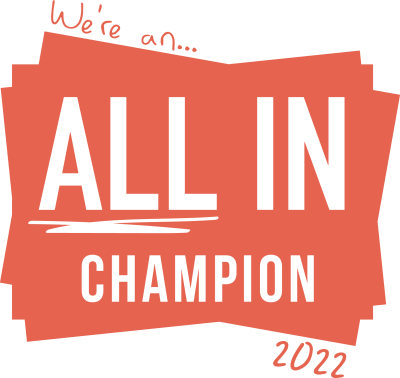Campaign Faces to Watch 2023: Omari Green
Omari has been instrumental to the growth of our agency over the past 12 months. She’s excelled in her client duties, injecting insight and technological creativity into everything she does. Beyond this, Omari has championed the agency’s neurodiverse community, represented BIMA’s young talent council, trained as a mental health first aider and even DJed for our office summer party. She’s already won our company-wide Employee of the Year award and been welcomed into the 2023 BIMA 100 cohort as a Rising Star. She’s a breath of fresh air and a creative energy definitely worth watching out for.
Climate: Is it up to adland to save the planet [and if so, what action should it take]?
It’s not fully up to us, but as we have a huge influence on culture, we definitely have a part to play. Ideally, we wouldn’t be using our creative talent for clients who are doing the worst damage, and don’t have a clear path to change. We should all be trained in Ad Net Zero, and work sustainably as agencies, and we should be pushing our existing clients to be more sustainable, too.
Cash: Are salaries high enough for new talent to plan a long-term career?
Yikes. It’s hard to say – salaries are growing, but so is inflation. I think the industry is in danger of losing talent to other industries and other countries if agencies don’t continue to make salaries genuinely competitive in relation to cost of living. So I’ll say yes for now, but we need to continue reviewing salaries.
Culture: What is your ideal work environment?
I thrive when I’m surrounded by passionate, warm people that I can bond with. I actually really like team away days and office parties. I also need a flexible working environment – having core hours, not feeling like I need to sit at my desk all day in the office, and working from home half of the week. I appreciate spaces where I can be alone when I really need to get my head down.
Inclusion: Will the industry ever be truly representative [and if so, how can it get there]?
Probably not. I think there are barriers to entry beyond what we in adland can control. However, we can get as close as possible by reducing bias in the hiring process, providing real DE&I training, and making people feel comfortable bringing their entire selves to work. Even if we don’t ever have a fully representative industry, we should have diverse teams who have the empathy and understanding to look outside their own experiences.
Access: Given under £10 a year per pupil is invested in creativity in schools, how should we encourage teenagers to enter the industry?
We need to have a presence in schools, engage in mentoring, and get teenagers to actually experience the tasks that we do. I fell in love with the industry at 16, when I went through Creative Mentor Network, and worked through a project with a creative director. I realised that what I enjoyed doing most was strategy, and here I am. We should help teenagers gain connections and experience to make them feel more confident.
Tech: Can we win the war against the robots [which platforms, programmes and tech are you most excited by – and which deserve more caution]?
I’m all for innovation and tech that supports human creativity and makes our lives easier. I’m not a fan of innovation that is inaccessible, or overly complex. I find myself drawn to extended reality and visual search. I’m still a bit apprehensive about generative AI. I don’t believe that it should ever replace human creativity, (please, hire writers) and there are some grey areas around copyright and intellectual property that make me a bit uncomfortable.
You: Where do you see yourself in five years?
In five years, I want to see my potential actualised. I want to be working on genuinely brilliant, exciting, innovative work that my mum will see without me having to show her. One of my dream clients is Nike, and I would also love to work with more beauty clients. I want to give back and be a mentor, too.
Nominated by Samuel Brigstock, Senior strategist, MullenLowe
